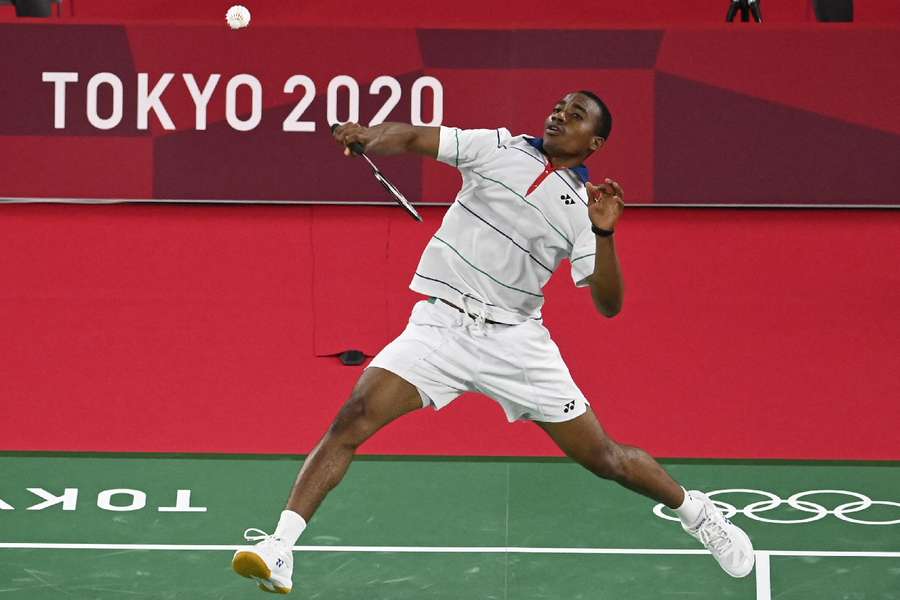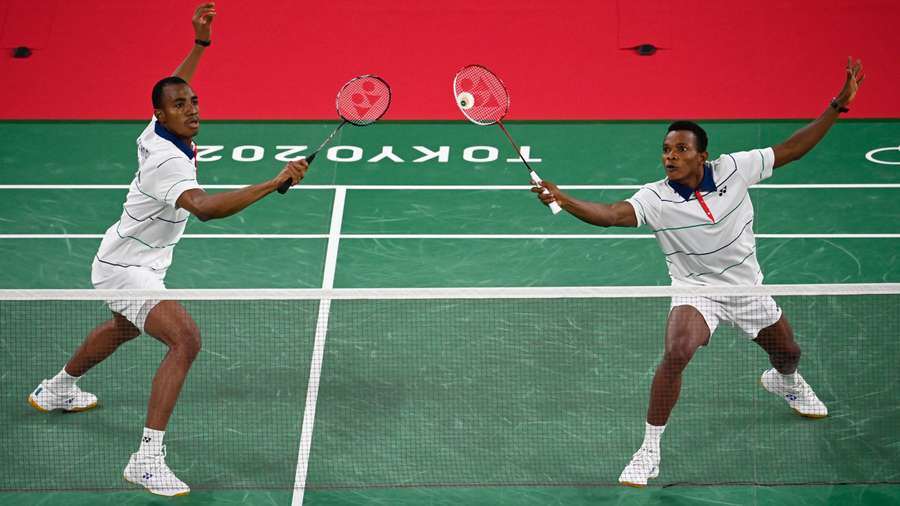EXCLUSIVE: Africa's badminton king Opeyori reveals motivation to make Olympic history

No African has won a badminton match at the prestigious Games, and the Nigerian is focused on breaking this curse, which could pave the way for a possible shot at gold in Paris.
Unlike his involvement in the men's doubles at the Tokyo 2020 games, the current African champion will compete in the men's singles this time. However, his motivation remains unwavering in this pursuit, which has the potential to solidify his position as the continent's greatest athlete in the sport's history.
“My main goal of going to the Olympics is to set that record. I want to make sure that I win at least one match,” Opeyori told Flashscore in an exclusive interview.
“Technically, if you look at the draw from my previous experience, we will be three in a group with one player to qualify. Instead of getting caught up in calculations, my entire focus is on securing a place in Olympic history.
“I'm deeply motivated and committed to training rigorously to achieve this aspiration.”
At the recently concluded African Games, he defeated Egypt's Adham Elgamal in the semi-final before silencing compatriot Godwin Olofua in the keenly contested men’s singles final.
This accomplishment made him the first man to secure back-to-back gold medals in the competition’s history, a feat he takes great pride in.
“This milestone means a lot to me, especially considering that no other Nigerian has accomplished it before.
“I'm determined to maintain this upward trajectory and aim even higher. Additionally, I quickly absorb and apply all the training I receive, both domestically and internationally.
“This adaptability has proven invaluable on the court, leading to tangible success," Opeyori said.
Despite being ranked number one in Africa, Opeyori holds the 101st position globally, yet he does not perceive this as a hindrance to his ambition of making history.
He points out badminton's nature as a sport of upsets, underscoring his confidence in overcoming challenges on his path.
“My global ranking won't influence my performance, given that there are players ranked lower than me who perform exceptionally. Therefore, I'm not concerned about rankings,” he added.
“While the players ranked above me may be stronger and more experienced, upsets are common in our sport, which is why we compete every time.
“In the end, it might be the unseeded players who returns home with the gold medal. I might be lucky enough to be at my best form and you see me winning every game as they come.
“I don't feel any pressure because I understand that the reward for hard work is more work. I'm fully aware that most of the opponents I'll face are continental champions.
“With this in mind, I recognize the level of competition I'll be up against, and I'm prepared for the challenge. Additionally, competing against such skilled opponents is a chance for me to learn and grow as an athlete.”

Opeyori, a devoted fan of long-time world number one Lee Chong Wei and two-time Olympic champion Lin Dan, made his Olympic debut in Tokyo 2020, partnering with Olofua in the men's doubles.
In their opening match, they succumbed to the formidable skills of Japan’s Hiroyuki Endo and Yuta Watanabe (21–2, 21–7). They faced defeat against Denmark’s Kim Astrup and Anders Skaarup Rasmussen (21–7, 21–10) and were unable to secure a win against Russia’s duo of Vladimir Ivanov and Ivan Sozonov (21–8, 21–10), concluding a lacklustre debut.
The 26-year-old reflects on some of the experiences gained four years ago in the Asian country.
He continued: “I took away valuable lessons from the Tokyo Olympics. First, I realized that I hadn't yet reached the required level at that time.
“After the tournament, I returned to the drawing board and identified key areas needing improvement. Unfortunately, my partner, Godwin Olofua, had to halt his participation at a certain point, preventing us from continuing our journey in doubles.
“This prompted my decision to shift my focus more towards singles. Additionally, I learned that training abroad differs significantly from what is typically practised in Africa.
“While we emphasize activities like running and strength training, they prioritize skills and technique. I've since integrated these insights into my training regimen. Those were some of the lessons I learnt during that period.”
Badminton was introduced as a medal-scoring event at the Olympic Games in 1992, starting with four medal categories: men’s and women’s singles, as well as men’s and women’s doubles.
At the Paris Olympics, 172 athletes will compete in the badminton event while medals will be contested in singles (men and women), doubles (men and women), and mixed doubles categories.

